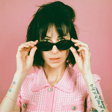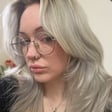
Dakota Noot
Dakota Noot is a Los Angeles-based artist and curator. He uses drawings, paintings, and installations to create animal-human hybrids that explore rural yet fantastical, queer identities. Originally from Bismarck, North Dakota, he continues to show in both North Dakota and Los Angeles, including solo and two-person shows at Highways Performance Space, MuzeuMM, and PØST. Noot has exhibited in group shows at Charlie James Gallery, Shoshana Wayne Gallery, Torrance Art Museum (FORUM. 2019; MAS-ATTACK, 2016), and “Queer Biennial: What if Utopia?” at LAST Projects. His series of cutout drawing-installations have been shown at LA Freewaves, Cerritos College Art Gallery, and Otis College.
Noot graduated with a BFA in Visual Arts from the University of North Dakota (2015) and an MFA from Claremont Graduate University (2017). He is currently an Adjunct Professor at Oxnard College and Orange Coast College. Along with Christopher Velasco, he co-founded the nomadic curatorial project Scream Queen. He was the key artist for the 2018 Slamdance Film Festival.
https://www.dakotanoot.com/



















